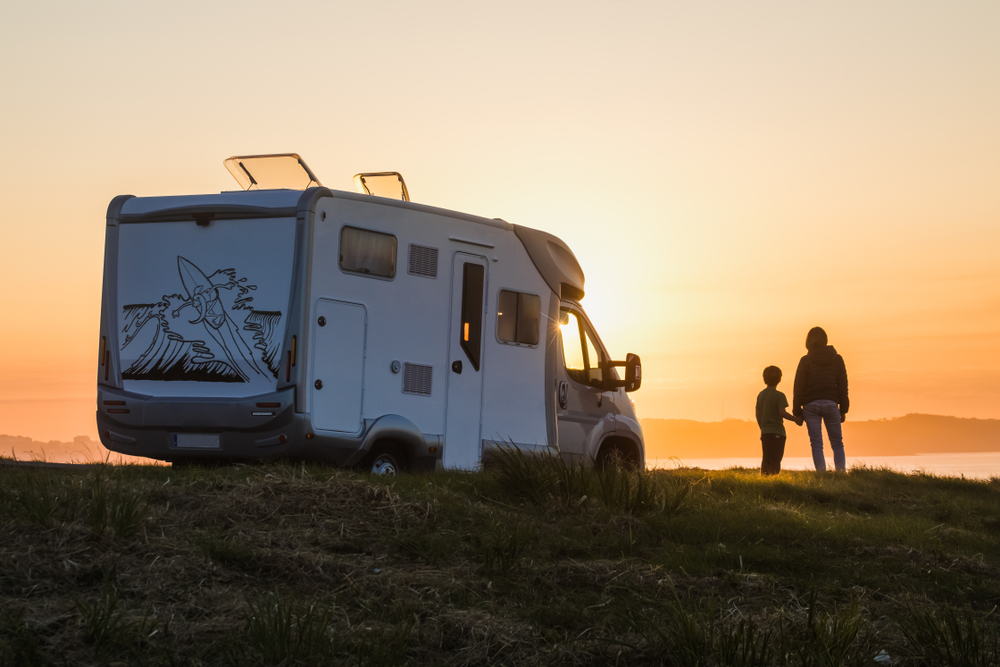Do I have to insure my RV?

Thinking about hitting the road and traveling the country in an RV for a few months or just going on the occasional weekend trip? Regardless of how you use it, you’ll need to insure your RV to be legal out on the road and to protect your investment.
According to industry statistics, roughly 11 million households own an RV in the U.S.
Like most everything else you own, RVs require insurance to make sure you are protected in the event your RV is involved in an accident or is damaged by a covered peril.
Do I have to insure my RV?
The short answer is yes. RVs require their own insurance policy if they have a motor and a steering wheel, so unless you are towing your portable home behind your truck you will need an RV policy. Whether you live in an RV full-time or part-time, an insurance policy is required.
Much like auto insurance, you will need to carry a minimum amount of liability and personal injury coverage for your RV to be legal out on the street and the minimum amount of insurance will vary by state.
Even if you are only renting an RV, you’ll still need to purchase some sort of insurance. In most cases, you can purchase an insurance plan through the rental company or get coverage with a third-party provider. It is important to note that while credit cards often offer rental car insurance as a perk, that coverage does not extend to RV rentals so relying on your credit card for coverage is not an option.
What even qualifies as a recreational Vehicle?
As you may know, there are many different types of RVs available to rent or buy. Before purchasing you should understand the difference between the various RV types, as they may have different insurance needs.
Class A
Class A RVs, also known as motorhomes, are the largest RV type. Often motorhomes come with the most features but are usually more expensive. You can identify a Class A by its bus-like shape and side door.
Class B
Class B RVs are sometimes called campervans. Class B’s tend to be less luxurious than motorhomes but are easier to drive and often much cheaper. Campervans usually resemble a van and are usually accessed by a sliding door.
Class C
Class C RVs are normally built on a truck or van chassis. They have a truck cabin where the driver sits and a raised roof that can be used as a sleeping area or storage. Class C RVs fall in the middle, they are bigger than a Class B but smaller than a Class A.
Regardless of which RV you drive, you will have to carry at least the minimum insurance your state requires. The only exception to this rule is for towable trailers such as pop-ups, travel trailers, and fifth wheels.
How much will my insurance cost?
There is really no way to answer this question accurately as insurance costs vary on a wide variety of factors. Insurers consider many factors in pricing RV insurance. Much like car insurance, the coverages you select, where the RV is kept as well as the price of the RV will all be considered when setting a premium. The owners driving record and other rating factors such as age and credit score will be considered as well.
Keep in mind that full-time RVers will pay more for insurance than people who only use their vehicle a few times a year.
Here are a few tips to help keep your RV insurance affordable:
- Ask about a discount for bundling policies
- Taking a defensive driving course can result in a discount
- RV associations often have insurance deals for their members
- Keep your driving record clean
- Look for RVs with safety features, and anti-theft devices
What insurance coverages are available for RVs?
RV insurance typically covers the same perils as most auto insurance policies. Damage through natural phenomena, fire, falling objects, water damage, as well as accidents with uninsured drivers is covered as long as your are carrying specific coverages.
If you own your RV outright, you are legally required to carry standard liability insurance and personal injury protection if you live in a no-fault state. However, if you are financing or leasing your RV, your lender will usually require you to carry full coverage. This includes comprehensive insurance, medical payments, and collision insurance.
Like car insurance, you do have options to add endorsements, such as towing, roadside assistance, and personal effect coverage.
If you are planning a trip to Mexico in your RV, you will need a special policy that extends coverage as most insurance policies exclude coverage in Mexico. Unlike Mexico, most policies cover travel in Canada.
In most cases, full time RVers will need to carry more insurance than a weekend warrior. If you aren’t certain if you are considered a full-time or Part-time RVer most insurers will consider you full time if you spend more than 150 days a year in your RV.
